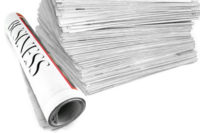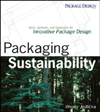Muller Develops Polymer-Coated Paperboard Solutions

Muller worked closely with Swedish packaging manufacturer Arta Plast to develop a renewable paperboard cup, known as Fiber Cup. Image courtesy of Muller
Muller, a global company in tool making and automation technology for thin-wall plastic packaging, is working closely with brand owners and processors to employ a range of strategies that will enhance the sustainability of plastic packaging, while also meeting the challenges that have been posed by plastic material shortages.
“We take our responsibility as stewards of the environment very seriously and we’re committed to helping our customers meet the growing demands for more sustainable packaging, while also helping customers navigate the current material shortage caused by the February ice storm that hit the Gulf Coast,” says Taras Konowal, director of sales and marketing for Muller North America.
Muller has worked closely with its customers throughout the design development stage to reduce the amount of plastic in containers by up to 30% through light weighting — and by up to 80% through substitution with paperboard. The company’s latest automation equipment designs have also decreased energy consumption by up to 40%. These efforts have distinguished the company in the automation industry, as manufacturers explore new packaging alternatives that deliver sustainability benefits and cut costs, according to Konowal.
One recent application illustrates how plastics usage can be optimized in the packaging industry. Muller is working with brand owners in the U.S. to develop polymer-coated paperboard solutions, which deliver strong barrier properties, along with a more sustainable and environmentally-sound packaging option. In particular, Muller worked closely with Swedish packaging manufacturer Arta Plast to develop a renewable paperboard cup, known as Fiber Cup. To ensure strong barrier protection and freshness for products such as crème fraiche, butter and chilled food, the paperboard is coated with a thin polypropylene (PP) layer on both sides.
The cup is recyclable, and its shape and printing and design capabilities showcase the brand, according to Muller. “This new package takes a fresh approach to improved sustainability, while also optimizing the use of plastics materials,” says Konowal.
During a two-year developmental process, the intercompany project team refined the injection molding process and developed a specialized mold and in-mold labeling (IML) technology. The fiber-based cup significantly reduces plastic use and keeps the product fresh. In addition, the container is sealed with a foil cover and incorporates a standard PP lid. This technology can be used for a range of dairy products, including yogurt, cheese spreads and margarine, in multiple sizes.
For more information, visit muller-technology.com.
Looking for a reprint of this article?
From high-res PDFs to custom plaques, order your copy today!








